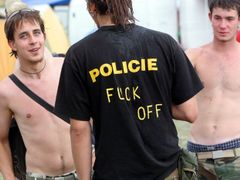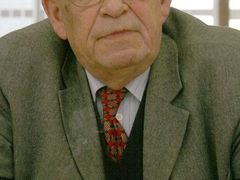Brno - Czech TV was not impartial when covering the aftermath of a police crackdown against the participants of an open-air techno party in the summer of 2005.
After the Ombudsman's report into the incident had come out, the national broadcaster highlighted the alleged police brutality, omitting the techno fans' law violations, the Supreme Administrative Court found.
The court upheld the 3,850 euro (100,000 CZK) fine for the breach of impartiality that was imposed on Czech TV by The Council for Radio and Television Broadcasting, a state-sponsored national media watchdog.
The Battle of Mlýnce Fields
The CzechTek party, which has since become a household name far outside the isolated techno and rave scene, took place in fields close to Mlýnce in the region of Tachov, Western Bohemia in July 2005.
The illegally held open-air rave was dispersed by police in a large-scale operation, during which dozens of techno fans and also policemen were injured. Acting on the orders of the Minister of Interior the police in riot gear used truncheons and shields, water cannons and tear-gas.
The incident, captured by numerous, widely circulated images of blood-stained youngsters beaten to the ground by attacking riot troops, immediately became a hot topic in the typically eventless summer season. It was passionately discussed by public, media and by default - politicians.
The then Prime Minister Jiří Paroubek of the Social Democratic Party (ČSSD) was one of the most vocal advocates of using force. He defended the police action by pointing to the participants allegedly being anti-social elements "inclining towards anarchism".
"Both sides guilty"
Ombusdman Otakar Motejl who launched an independent investigation of the violent police dispersion of the party claimed in his report mistakes were committed on both sides.
"It was not a black and white situation however contradictarily described by both parties of the conflict," said Motejl.
The Czech Supreme Administrative Court ruled that The Radio and Television Broadcasting Council reviewed correctly that Czech TV had concealed the most important part of Ombudsman Otakar Motejl's report in the primetime news and analysis program Události, komentáře, which was his conclusion that the police crackdown itself was rightful and that in turn the ravers also erred in their behavior.
Czech TV failed to convince the court that it was in the public interest to inform viewers first and foremost about the questionable behavior of the policemen rather than describing the techno fans´ breaches of law.
According to the judges, the level of guilt of each side is completely irrelevant for the judgment of Czech Television's apparent failure to provide objective and impartial news.
"The crucial point is, whether the obligations of public television broadcasting were violated," stated the court.
The Ombudsman's office received about 4,000 e-mails related to the CzechTek incident. The inspection of the Ministry of the Interior collected 128 criminal complaints. Only two were pursued, resulting in the punishment of a police officer, whose salary was cut.

